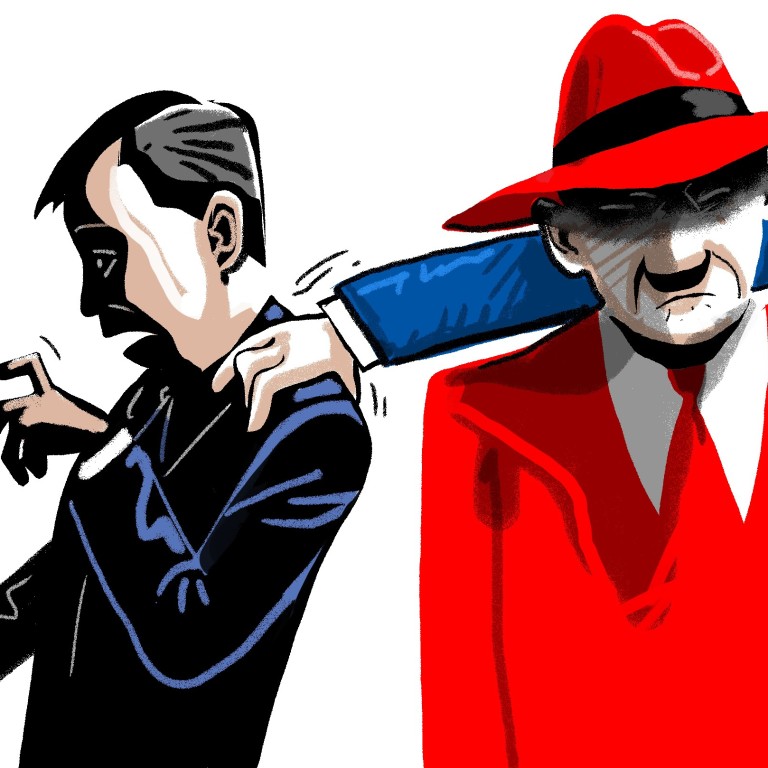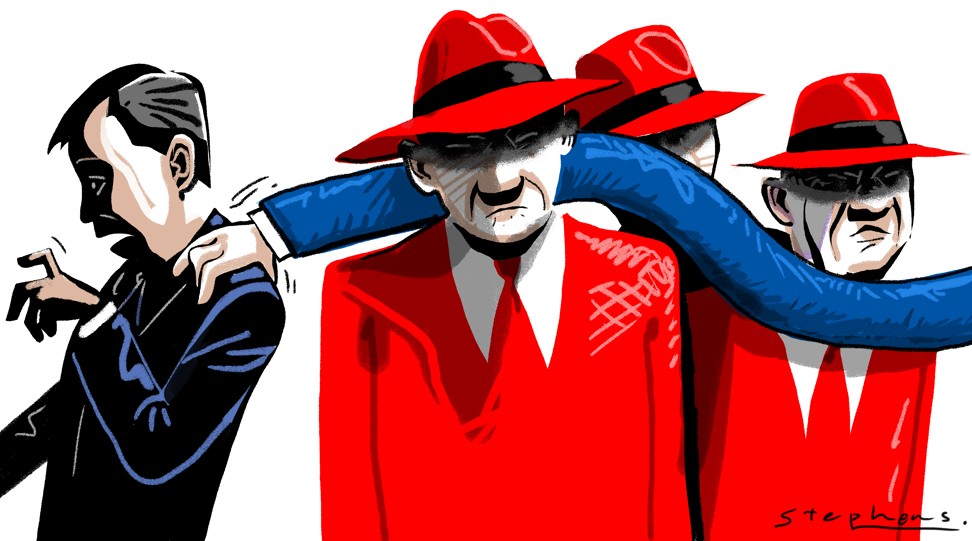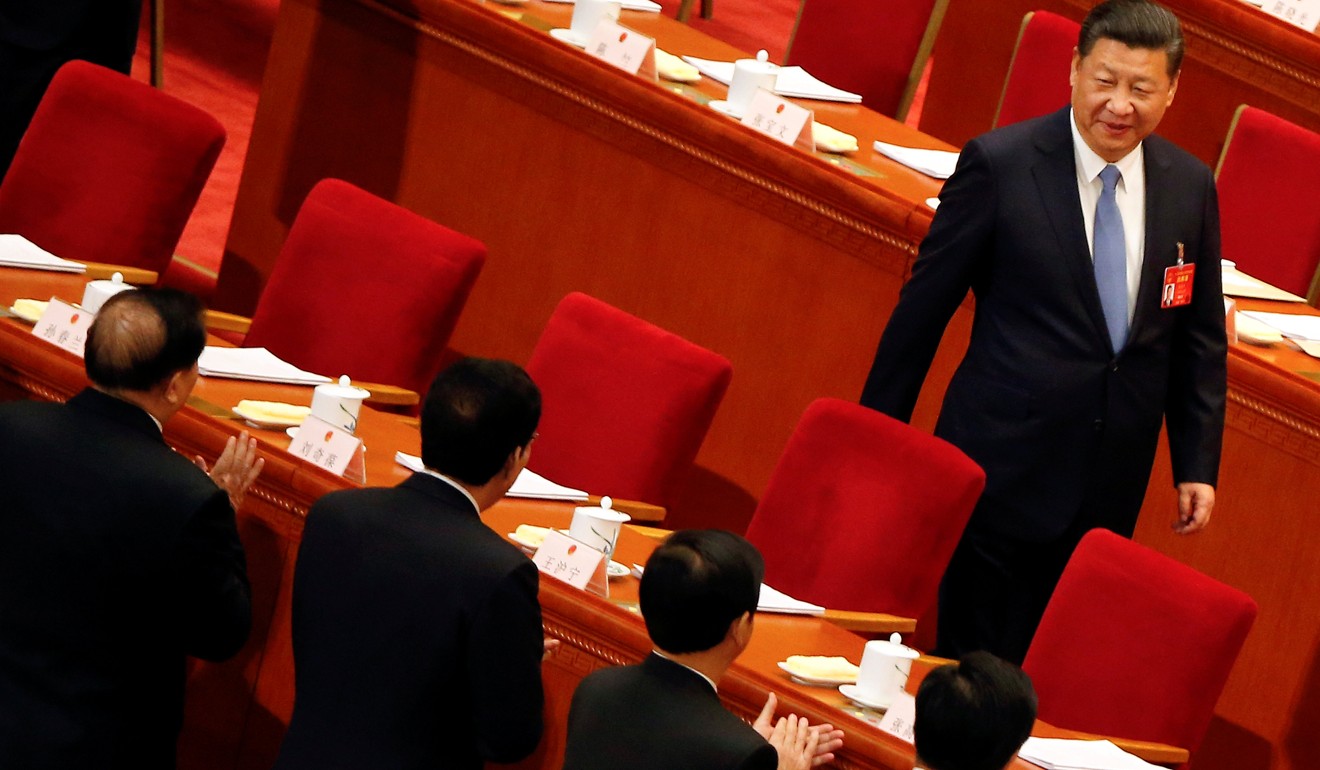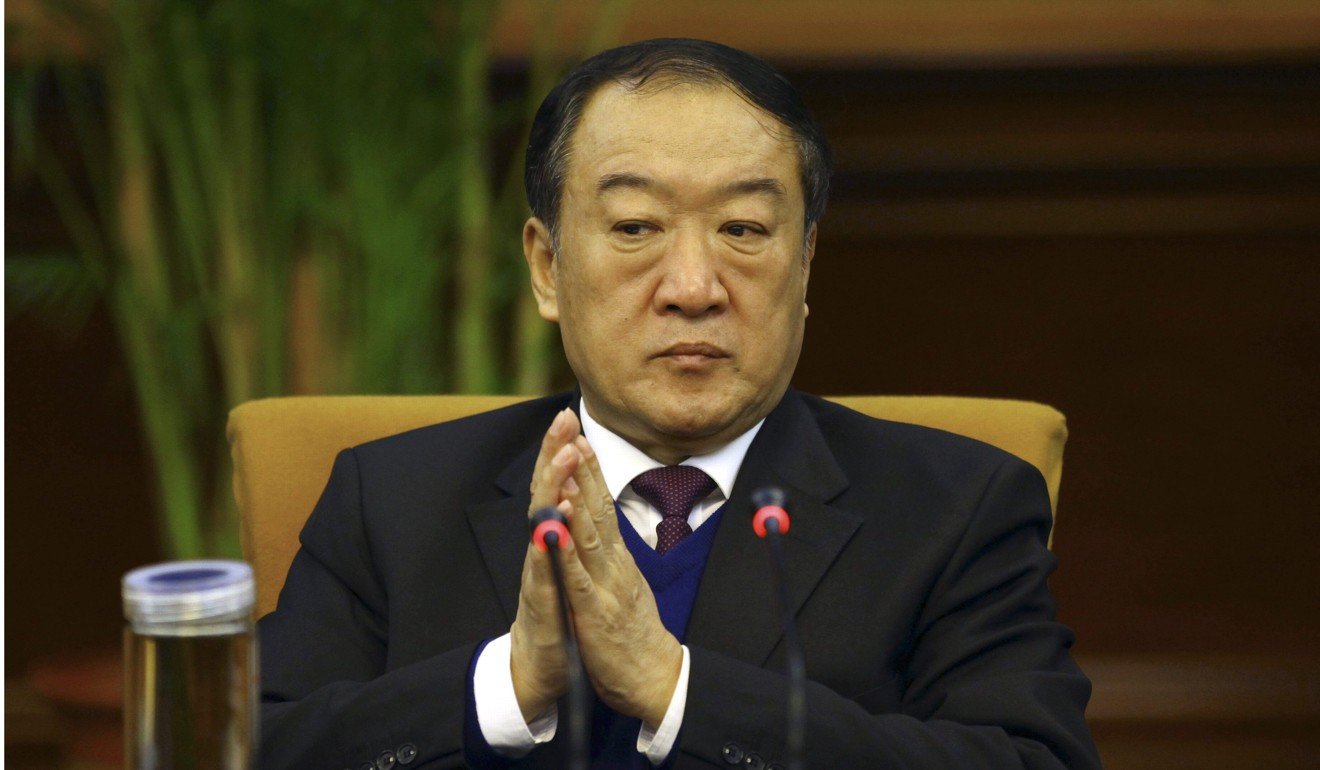
The three groups of untouchables in China’s corruption crackdown
Deng Yuwen believes Communist Party leaders have set a bottom line of not targeting the scion of the nation’s founders, Politburo members and retired party elders, despite promises of a no-holds-barred anti-corruption campaign

In reality, China’s leaders often make similar statements. Nevertheless, judging from the arrests so far, it is clear that the campaign has succeeded in ensuring there’s “no floor” but is far from having “no ceiling”.
Yet, many Chinese are not impressed. From the start, there have been murmurs of disapproval, with some calling the campaign “selective anti-corruption”, or a front for a purge, or a power struggle. As the current leadership prepares to undergo the five-yearly power transition this year, such views have become more, not less, commonplace.
China’s aircraft carrier impresses, but PLA corruption is a bigger battle

Can China be the next anti-corruption success story, after Hong Kong and Singapore?
To be fair, we should not doubt the leadership’s sincerity and determination in tackling corruption. Fundamentally, the battle is being waged not because of any one leader’s proclivity, but out of a need for the party to safeguard its own rule. As leaders have repeatedly stressed, corruption is a scourge that, if left untouched, will lead to the party’s and the nation’s demise. If these words were uttered in the past just for show, today’s leaders mean them because they sense that the party’s survival is at stake.
That said, critics of the anti-corruption drive have a point. The campaign today has come under considerable “ceiling pressure”. In other words, it is stuck in a bottleneck. And I believe a breakthrough now will shatter the balance of the entire political system and lead to unpredictable political consequences.
If those at the top also become targets for investigation, it may trigger political infighting and party division, perhaps leading to another ‘Bo Xilai incident’
But where does this “ceiling pressure” come from? I believe it’s because the leadership set a bottom line for the campaign right from the start – that is, no matter what happens, three groups of people are off-limits: the “second generation reds”, or children of the People’s Republic’s founding fathers, Politburo members, and the retired elders of the Communist Party.
First, the hong erdai, or “second generation reds”. The explanation given for the fact that no one from that generation has been tainted with corruption charges is that they have a strong sense of national duty and are incorruptible. This does not hold water. It’s true that most of them grew up in a privileged environment and are not wanting, but to say that they are above it all is just not credible. Human nature is the same everywhere, and no one is born corrupt or incorruptible. In fact, as has been repeatedly demonstrated in the cases uncovered so far, the closer people are to the power centre, the more opportunities there are for corruption.
There can be only one reason why no one from that generation has been implicated – the hong erdai have been ruled untouchable. After all, they are the natural supporters of communist rule. Perhaps more than their predecessors, this generation of Chinese leaders appear to have a strong sense of legacy, and feel strongly that a nation forged by the party elders must not be lost in this generation. In some sense, the special status accorded to the hong erdai stems from the same ideological framework. If one among the hong erdai is tainted with corruption, it might shake the people’s faith in communist rule. This is why they are off limits.
Xi is picking his battles, and letting old power brokers be, for now

When it comes to current Politburo members and the party’s retired elders, it is likely that they have been given a pass because of the need to preserve a balance of power. In the current round of the crackdown, the highest official caught so far has been a vice-chairman of the Chinese People’s Political Consultative Conference, a position that is nowhere near as powerful as a seat on the Politburo. Even in the Jiang Zeming (江澤民) and Hu Jintao (胡錦濤) eras, some Politburo members were hauled up for corruption (even though they were likely ousted as a result of a power struggle). But not this time.
The government bureaucracy may be corrupt, but if the core of the ruling party is relatively clean, the party may still leave the people with a good impression. This is why the occasional overseas reports of corruption involving Politburo members have been dismissed by the Chinese government as acts with an ulterior motive.
Watch: Zhou Yongkang sentenced to life in prison
How then should we make sense of the downfall of Zhou Yongkang? His case, linked to the Bo Xilai fallout, is an exception rather than the rule. Besides, it is widely believed that it was the previous leadership that worked together to bring Zhou down. From the current leaders’ perspective, Zhou’s case (and the downfall of Ling Jihua, a key aide of former president Hu) can be seen as a warning to the elites to behave. But because of the potentially huge consequences of such a high-profile downfall, it is safe to say that there will be no retired party elders following in Zhou’s footsteps.
Deng Yuwen is a researcher at the Charhar Institute think tank

